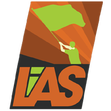ABOUT THE LEARNING IN AFTERSCHOOL & SUMMER (LIAS) PROJECT
The Learning in Afterschool & Summer project is working to focus discussions within the afterschool movement on what we know about children and their learning.
What this project tries to do is focus not on what young people should learn, rather focus on the how- program approaches that promote learning. You will notice that the exemplar afterschool programs - the ones that are the darlings of the afterschool movement - are all exceptional in how they promote young people’s excitement in learning. The same is true of those exceptional educators who are named as teachers of the year in local, state, and national ceremonies. What we hear most about these acclaimed classroom teachers are their abilities to motivate and excite young people in learning. But somehow we bypass the principles that they apply in practice. This project aims to focus our attention and practice on a few learning principles.
1. Learning that is Active
Learning and memory recall of new knowledge is strengthened through different exposures – seeing, hearing, touching, and doing. Afterschool learning should be the result of activities that involve young people in “doing” – activities that allow them to be physically active, stimulate their innate curiosity, and that are hands-on and project-based. ( CA Quality Standards #2, 3, & 5)
2. Learning that is Collaborative
Afterschool and summer programs should help young people build team skills that include listening to others, supporting group learning goals, and resolving differences and conflicts.
Collaborative learning happens when learners engage in a common task where each individual depends on and is accountable to each other. (CA Quality Standards #1, 2, 3, & 8)
3. Learning that is Meaningful
Learning is meaningful when youth have some ownership over the learning topic, the means to assess their own progress, and when the learning is relevant to their own interests, experiences, and the real world in which they live. Community and cultural relevance is important to all youth. (CA Quality Standards #2, 3, & 4)
4. Learning that Supports Mastery
If young people are to learn the importance and joy of mastery, they need the opportunity to learn and practice a full sequence of skills that will allow them to become “really good at something.” Afterschool and summer activities should be explicitly sequenced and designed to promote the layering of new skills. (CA Quality Standard #3)
5. Learning that Expands Horizons
Afterschool and summer programs should provide learning opportunities that take youth beyond their current experience and expand their horizons. They should go beyond the walls of their facilities to increase young people’s knowledge of their surrounding neighborhood and the larger global community. (CA Quality Standards #2 & 3)
What this project tries to do is focus not on what young people should learn, rather focus on the how- program approaches that promote learning. You will notice that the exemplar afterschool programs - the ones that are the darlings of the afterschool movement - are all exceptional in how they promote young people’s excitement in learning. The same is true of those exceptional educators who are named as teachers of the year in local, state, and national ceremonies. What we hear most about these acclaimed classroom teachers are their abilities to motivate and excite young people in learning. But somehow we bypass the principles that they apply in practice. This project aims to focus our attention and practice on a few learning principles.
1. Learning that is Active
Learning and memory recall of new knowledge is strengthened through different exposures – seeing, hearing, touching, and doing. Afterschool learning should be the result of activities that involve young people in “doing” – activities that allow them to be physically active, stimulate their innate curiosity, and that are hands-on and project-based. ( CA Quality Standards #2, 3, & 5)
2. Learning that is Collaborative
Afterschool and summer programs should help young people build team skills that include listening to others, supporting group learning goals, and resolving differences and conflicts.
Collaborative learning happens when learners engage in a common task where each individual depends on and is accountable to each other. (CA Quality Standards #1, 2, 3, & 8)
3. Learning that is Meaningful
Learning is meaningful when youth have some ownership over the learning topic, the means to assess their own progress, and when the learning is relevant to their own interests, experiences, and the real world in which they live. Community and cultural relevance is important to all youth. (CA Quality Standards #2, 3, & 4)
4. Learning that Supports Mastery
If young people are to learn the importance and joy of mastery, they need the opportunity to learn and practice a full sequence of skills that will allow them to become “really good at something.” Afterschool and summer activities should be explicitly sequenced and designed to promote the layering of new skills. (CA Quality Standard #3)
5. Learning that Expands Horizons
Afterschool and summer programs should provide learning opportunities that take youth beyond their current experience and expand their horizons. They should go beyond the walls of their facilities to increase young people’s knowledge of their surrounding neighborhood and the larger global community. (CA Quality Standards #2 & 3)
THE LIAS TEAM

Sam Piha
Founder and Co-Director
Sam Piha is the founder and principal of Temescal Associates, a consulting group dedicated to building the capacity of leaders and organizations in education and youth development who are serious about improving the lives of young people. Sam began his career in 1974 as an afterschool worker, an experience that led to 10 years of classroom teaching, and later work as a child and family counselor and school social worker. Between 1989 and 2001, Sam developed and managed school-based youth programs at the regional and national levels.
In 1996, Sam joined the Community Network for Youth Development, to help launch and serve as Managing Director of the San Francisco Beacon Initiative, a large public and private partnership dedicated to transforming public schools into vibrant community centers serving youth in the afterschool hours. When California began it’s unprecedented expansion of state-funded afterschool programs, Sam help shape the growing afterschool movement in California. He chaired and served on several key state committees and joined with others to build a state-wide system of support for new programs, align state afterschool policies with youth development principles, and successfully support the launch of the state’s After School Safety and Education for Teens, a large state-wide high school afterschool initiative.
Sam has served as editor and contributing author of several important practice guides and journal articles on afterschool programming. He has received several awards including California Afterschool Network's Innovation in High School After School Leadership and Vision (2010), being named by NAA as One of 25 Most Influential People in the Afterschool Community (2014), and Region 2's Trailblazer Award (2019) Sam holds a Masters Degree in Social Welfare, is a Licensed Clinical Social Worker, and the father of Max.
Founder and Co-Director
Sam Piha is the founder and principal of Temescal Associates, a consulting group dedicated to building the capacity of leaders and organizations in education and youth development who are serious about improving the lives of young people. Sam began his career in 1974 as an afterschool worker, an experience that led to 10 years of classroom teaching, and later work as a child and family counselor and school social worker. Between 1989 and 2001, Sam developed and managed school-based youth programs at the regional and national levels.
In 1996, Sam joined the Community Network for Youth Development, to help launch and serve as Managing Director of the San Francisco Beacon Initiative, a large public and private partnership dedicated to transforming public schools into vibrant community centers serving youth in the afterschool hours. When California began it’s unprecedented expansion of state-funded afterschool programs, Sam help shape the growing afterschool movement in California. He chaired and served on several key state committees and joined with others to build a state-wide system of support for new programs, align state afterschool policies with youth development principles, and successfully support the launch of the state’s After School Safety and Education for Teens, a large state-wide high school afterschool initiative.
Sam has served as editor and contributing author of several important practice guides and journal articles on afterschool programming. He has received several awards including California Afterschool Network's Innovation in High School After School Leadership and Vision (2010), being named by NAA as One of 25 Most Influential People in the Afterschool Community (2014), and Region 2's Trailblazer Award (2019) Sam holds a Masters Degree in Social Welfare, is a Licensed Clinical Social Worker, and the father of Max.

Ren Daraio
Co-Director
Ren Daraio brings over 25 years of experience working in the field of youth development as a facilitator, trainer, and coach. They have experience training and coaching diverse audience groups, from afterschool practitioners and parents to funders and technical assistance providers.
As a Temescal Associate, Ren has conducted high school trainings and learning communities based on Temescal’s Bedrock to Rooftop framework. Prior to their work with Temescal Associates, Ren was the Deputy Director at the Community Network for Youth Development and a consultant for the Institute for Research and Reform in Education. They hold a BA in Theater and Psychology and a MA in Drama Therapy.
Co-Director
Ren Daraio brings over 25 years of experience working in the field of youth development as a facilitator, trainer, and coach. They have experience training and coaching diverse audience groups, from afterschool practitioners and parents to funders and technical assistance providers.
As a Temescal Associate, Ren has conducted high school trainings and learning communities based on Temescal’s Bedrock to Rooftop framework. Prior to their work with Temescal Associates, Ren was the Deputy Director at the Community Network for Youth Development and a consultant for the Institute for Research and Reform in Education. They hold a BA in Theater and Psychology and a MA in Drama Therapy.
LIAS EXECUTIVE COMMITTEE

Katie Brackenridge
Katie is a Non-Profit and Philanthropic Consultant. Experienced education leader focused on equity and social justice, with proven success in project design and delivery, policy analysis and development, strategic decision-making, advocacy, collaboration and communication.
Katie is a Non-Profit and Philanthropic Consultant. Experienced education leader focused on equity and social justice, with proven success in project design and delivery, policy analysis and development, strategic decision-making, advocacy, collaboration and communication.

Bill Fennessy
Bill currently serves with the California AfterSchool Network (CAN) as a Program Specialist on Equity, Quality and Workforce Development. In 2004 at Blair IB School in Pasadena, CA, Bill launched California’s first ASSETs pilot programs. Bill is recognized as a pioneer, innovator, exemplary practitioner, and thought leader in High School Expanded Learning nationwide. During the pandemic, Bill served as the Director of High School Programs for “A World Fit for Kids!”.
Bill currently serves with the California AfterSchool Network (CAN) as a Program Specialist on Equity, Quality and Workforce Development. In 2004 at Blair IB School in Pasadena, CA, Bill launched California’s first ASSETs pilot programs. Bill is recognized as a pioneer, innovator, exemplary practitioner, and thought leader in High School Expanded Learning nationwide. During the pandemic, Bill served as the Director of High School Programs for “A World Fit for Kids!”.

Brad Lupien
Brad is the President and CEO of arc. Brad began his career as a teacher and social worker in the juvenile justice system and as a special education teacher in Boston, MA. He taught middle and high school young people identified as having “behavioral and emotional disabilities.” To address his student’s multiple risks, Brad began an after school Outdoor Education Club for his gang-involved students; he modeled the method after his experience serving as a summer guide for teens, leading month-long adventures in the Rocky Mountains. At arc, Brad is responsible for business development and new programs. He is also co-Founder and Chairman of the Board for CORE Educational Services.
Brad is the President and CEO of arc. Brad began his career as a teacher and social worker in the juvenile justice system and as a special education teacher in Boston, MA. He taught middle and high school young people identified as having “behavioral and emotional disabilities.” To address his student’s multiple risks, Brad began an after school Outdoor Education Club for his gang-involved students; he modeled the method after his experience serving as a summer guide for teens, leading month-long adventures in the Rocky Mountains. At arc, Brad is responsible for business development and new programs. He is also co-Founder and Chairman of the Board for CORE Educational Services.

Dr. Michelle Perrenoud
Dr. Perrenoud is Project Coordinator at the Los Angeles County Office of Education, Expanded Learning Technical Assistance Unit. She is recognized as an educational leader and is particularly renowned for her work in the fields of expanded learning, education and youth development. She has extensive experience with research and program design for older youth programs serving middle and high school students. Her scholarly research at UCLA focused on understanding interests of middle school youth in expanded learning programs and youth and practitioner perceptions of the conditions that foster young people’s desires to attend and participate. Michelle is a published author and frequent conference speaker.
Dr. Perrenoud is Project Coordinator at the Los Angeles County Office of Education, Expanded Learning Technical Assistance Unit. She is recognized as an educational leader and is particularly renowned for her work in the fields of expanded learning, education and youth development. She has extensive experience with research and program design for older youth programs serving middle and high school students. Her scholarly research at UCLA focused on understanding interests of middle school youth in expanded learning programs and youth and practitioner perceptions of the conditions that foster young people’s desires to attend and participate. Michelle is a published author and frequent conference speaker.




